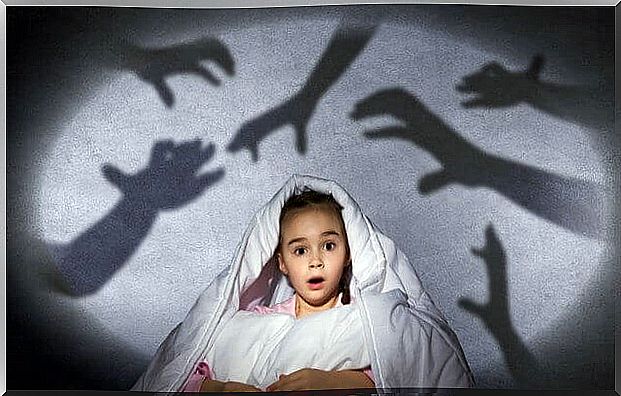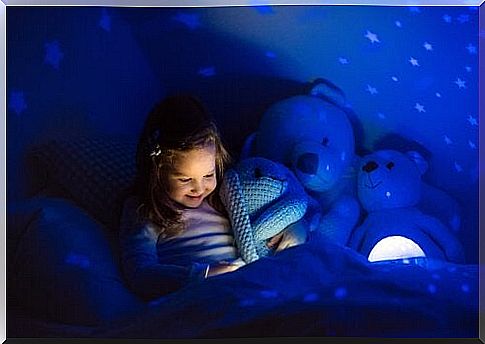My Son Is Afraid To Be Alone

If your child is afraid of being alone, he shouldn’t ignore his feelings and worries. The fear you feel, whether it is a product of something real or imaginary, can trigger emotions that end up unbalancing the child’s life and, as a consequence, yours as well.
Fear is an unpleasant feeling that is often generated by a perception of danger. This perception arises in the face of a real or fictitious risk or threat, and the person who suffers it may feel paralyzed and unable to react.
Young children can be easily invaded by the feeling of anguish and fear motivated by the great imagination they tend to have. If your child expresses fear when being alone, it is best to delve into the causes of this anguish so that this fear does not affect their adult life. We’ll give you some tips so you can help your child.
What are children afraid of?
The fears most children express are of the dark, of animals, of unknown or closed places, of being with strangers, of thunder and storms.

Between ages 2 and 5, your child may be afraid or anxious about loud noises, being away from parents, and the dark. At these ages the fear of darkness and people in disguise tends to increase.
Between 6 and 8 years old, they start to feel fear for imaginary beings such as ghosts, witches, monsters or extraterrestrials. As well as the fear of loneliness. After this age and up to approximately 13 years, fear of physical harm, relationships with parents and death appears.
What to do if the child is afraid of being alone?
There are initial steps that can be taken to increase your child’s confidence and security. Here we recommend the most basic ones.
don’t make her be alone
Facing the fear of loneliness is something that must be dealt with progressively. Forcing the situation when the child is unprepared will cause other phobias to arise. Using expressions such as “it’s your imagination” or “you look like a baby, how many times should I tell you there’s no one” will not make your child feel better.
It is important to respect the limits in the face of situations that make you stressed and give them time to mature and understand that nothing bad will happen to them. Treat him with love and respect. Understand that when your child is afraid of being alone, he or she is in a completely normal evolutionary process.
Delve into your fears
You need to delve into your fear of being alone. Ask your child what you think might happen if they are left alone. You must look for the root of the problem without judging or getting upset. Nor is it healthy for you to play games with your fears. Listen carefully when I tell you what you think and feel.

Perhaps the child believes that you will not be there to help them if something happens. Try to find the source of your fears and deal with them accordingly.
Implement assertive strategies
If fear arises at bedtime, establish a routine for getting the child to bed. This practice will help your child build confidence by following the same bedtime routine every day, such as bathing, having dinner, telling a story, and going to bed.
When the little one learns to sleep alone, he won’t be afraid when he wakes up in the middle of the night and doesn’t see anyone with him. Get into the habit of putting him to sleep in his own bed early so he can get used to his own resting place.
Try to keep him with a teddy bear or your favorite doll. The feeling of sleeping cuddled up with something, like a pillow, will comfort you. If your fear is of the dark, you can leave a soft light on or the door ajar to listen if your child calls you.
Never get him out of bed in the face of a crisis, no matter how strong the crying. Take your hand, make up some entertaining story or sing a song. Try to stay with him until he calms down and goes back to sleep.
Let him know that he will always be there
When your child is afraid of being alone, it is vital that he understands that you will be there to care for and protect him. Try letting him play alone, or let him do his homework without you.

At first, you can talk to your child from another room, make some noise or sing to let him know you’re nearby. This will bolster your confidence knowing that if you call or need you, you can get it quickly.
Final considerations
The disproportionate fear can generate unpleasant symptoms in the child, such as nausea, nausea, stomach upset and fever. If your child is afraid and reacts in a way that you consider excessive, seek expert advice.








